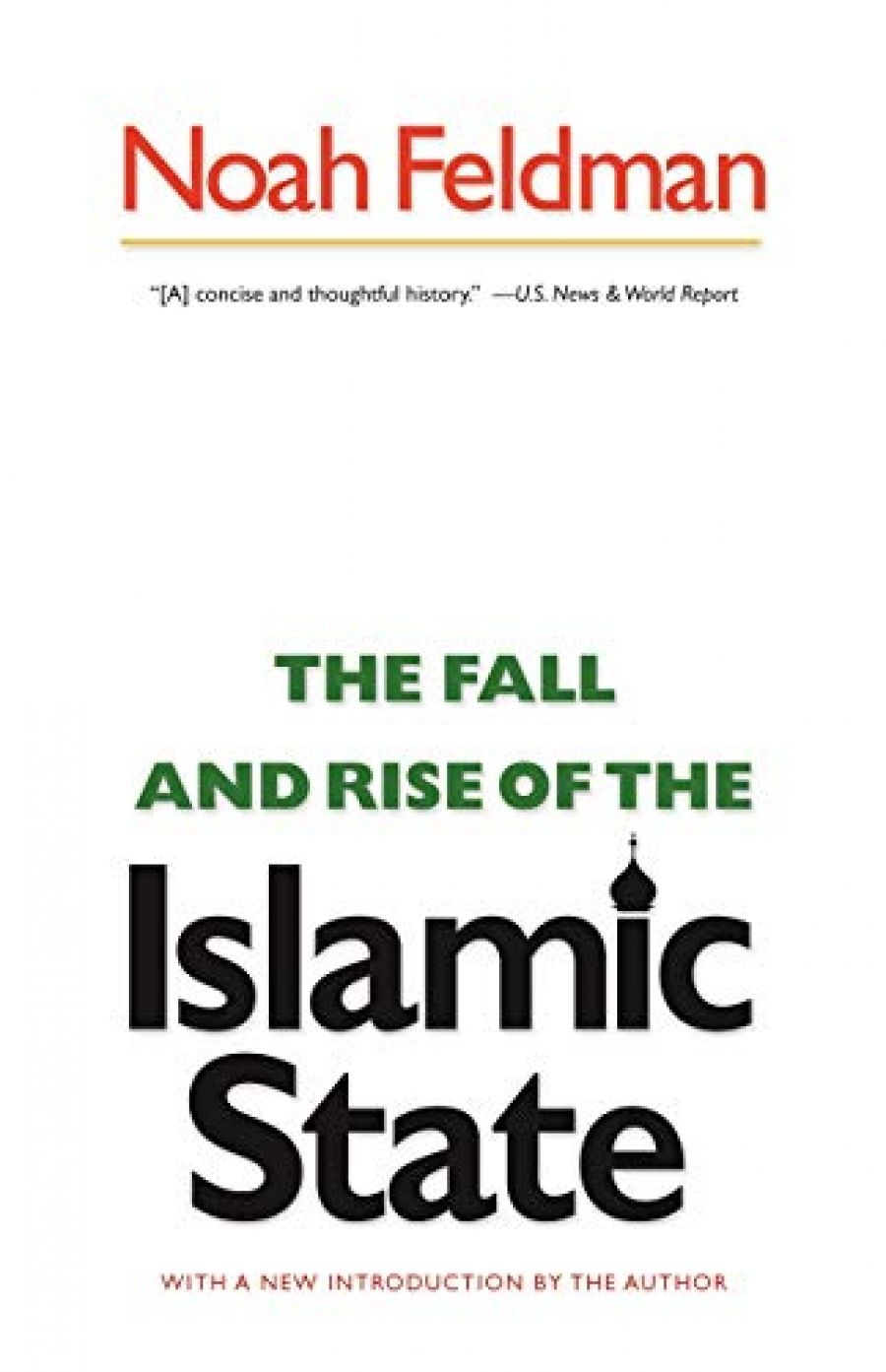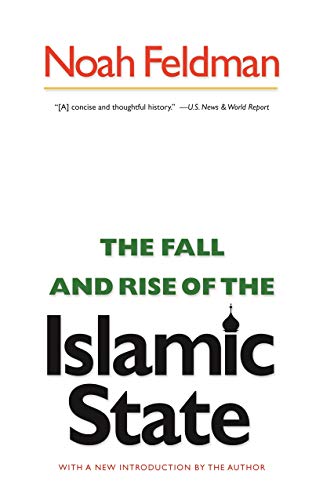
- Free Article: No
- Contents Category: Politics
- Custom Article Title: Scholars and qadis
- Review Article: Yes
- Article Title: Scholars and qadis
- Online Only: No
- Custom Highlight Text:
In his final, unfinished opus, the German writer Max Weber presented his exemplar of irrational, arbitrary law-making by describing an image of a Muslim qadi, or judge, sitting beneath a palm tree, dispensing justice as he saw fit. Later, as scholars began to examine Western portraits of the east – particularly in the wake of Edward Said’s critique of Orientalism – Weber’s description was itself held up as an example of unthinking and condescending Western judgement. More recently, as the Western and Islamic worlds have meshed and clashed – over oil, land, beliefs and geopolitics – the stereotypical image of the Muslim religious leader has been assigned a whole new set of connotations, involving fanaticism, violence and doom: the qadi remains charmingly austere, but no longer benign.
- Book 1 Title: The Fall and Rise of the Islamic State
- Book 1 Biblio: Princeton University Press, $35.95 hb, 189 pp
- Book 1 Cover Small (400 x 600):

- Book 1 Cover (800 x 1200):

The ensuing reforms, known as the Tanzimat, included judicial reforms that led to a shift towards secular democracy, but were, according to Feldman, a catastrophe. The reformers codified sharia law and destroyed the scholarly class, a change Feldman describes as ‘world-changing’:
These legal and constitutional reforms displaced and destroyed the scholarly class, without leaving in their wake any institution or social entity capable of counterbalancing the executive as the scholarly class had once done … It opened the possibility of secular government; but simultaneously, the removal of the one meaningful check on executive authority cleared the way for autocratic and absolute power.
Subsequently, Islamic law under the Ottomans was effectively state-controlled and was no longer treated as transcendent. The scholars had their jurisdiction stripped back to matters of family law and were treated as authorities in religious matters only. The result of all this, says Feldman, was to create ‘governance disasters’ – including the increasing centralisation of power in the hands of the sultan – with widespread ramifications, including recent calls in Turkey and across the region for a return to Islamic rule.
In two previous books, After Jihad: America and the Struggle for Islamic Democracy (2003) and What We Owe Iraq: War and the Ethics of Nation Building (2006), Feldman, who advised the Coalition Provisional Authority on the framing of an Iraqi constitution, has written about the compatibility of Islam with democracy with the prospects for developing a workable government in Iraq. Feldman does not believe that the West needs to fear states in which Muslim-majorities base their legal systems on the sharia, or that a government based on the sharia must preclude democratic principles. Nor does he believe that Islam encourages a ‘distinctively obedient’ mindset or is naturally oriented towards autocratic rule. He argues the opposite: for centuries, the natural state in the Islamic world was a constitutional balance of powers in which the scholarly class served as a barrier to the growth of an unchecked executive. It was only in the wake of the Ottoman reforms that the Islamic states lost this insurance against tyranny. In Feldman’s view, democratic and Islamist governments are the only two forms of governance that have been able to rise after falling: democracy took about 2000 years to return after flourishing in ancient Greece, while Islamism is returning after disappearing with the Ottoman empire less than a century ago.
Unfortunately, the book, which deals mainly with the legal challenges involved in developing a workable Islamic state, looks only briefly at the complex – and generally more interesting – question of the social, cultural and political pressures within Muslim-majority states that have led to varying forms of Islamism. In many countries, particularly across the Middle East, systemic corruption, failing economies and a lack of political freedom have delegitimised both the political leadership and the efforts by rulers in these states to forge stable national identities.
Religious institutions have often been best placed to fill a void caused by unsatisfactory rule; the suppression of Islamist groups in such circumstances has at times helped to strengthen their support. Also, as Feldman notes, political Islam has its own appeal – separate from these grievances – and has used sophisticated techniques to broaden its reach.
In this book, which is a fairly dry, albeit short, essay on legal history, Feldman provides greater context in a short section on Saudi Arabia, which he discusses because it is the exception to the otherwise region-wide decline of the authority of the scholars. Much of the Saudi region, aside from Hijaz, which includes the holy cities of Mecca and Medina, did not come under Ottoman rule; nor was it colonised by the British. Before the discovery of oil, the desert territory was regarded as worthless and was largely left alone by the empires. As a result, Saudi Arabia did not undergo a process of codifying the sharia or adopting a constitution or weakening the role of the scholars.
Instead, the scholars have remained the keepers of the sharia and retain the power to confer legitimacy on state policy. For example, it is the scholars – not the ruling House of Saud – who have largely led the resistance to allowing women in Saudi Arabia to drive. The scholars have also been able to sanction and intervene in foreign policy decisions. For instance, in the lead-up to the first Gulf War in 1991, a fatwa, issued by a committee of scholars that included the grand mufti, granted the United States permission to deploy troops in Saudi Arabia. This fatwa later gained prominence as the target of Osama bin Laden’s vitriol in his first major public pronouncement.
According to Feldman, there are two features of Saudi society that have simultaneously helped the scholars to retain their independence and have discouraged reform. The first is the close relationship between the rulers and the scholars. This dates back to the alliance forged in the eighteenth century between the military leader Muhammad Ibn Saud, who founded the Saud dynasty, and the religious leader Sheik Muhammad Ibn Abd al-Wahhab, who developed the refined, purist version of Islam that has prevailed in the country.
The second reason for the anomalous position of the Saudi scholars is the country’s stupendous natural wealth: oil money has allowed the rulers to govern without reliance on taxation. The scholars therefore have no incentive to fetter the executive and need do little to ensure the state’s institutions retain popular legitimacy. The political Islamism that emerged in the twentieth century did not seek to revive a Saudi-style or pre-Tanzimat place for Islamic scholars. Instead, non-scholars would run the state in accordance with Islamic values rather than adopting the classical scholarly tradition. The Islamists have called for the rule of sharia, but not the rule of trained legal scholars.
The exception, or polar opposite, to this form of non-scholarly rule was Iran, where, since the 1979 revolution, the scholars have reigned supreme. But, according to Feldman, the Iranian model was at odds with traditional concepts of Islamic governance: in Iran, the scholars do not act as a check on absolute rule but are themselves invested with absolute power:
The consequences of this model came as no surprise. An executive that is not counterbalanced will tend toward abuse of power and absolutism. Government in Iran under the mullahs has been as been as lacking in basic freedoms, in transparency, and in the due process of law as government in most other Muslim states that are not run by the scholars – sometimes even more so.
In the end, Feldman does not specifically call for a return of the traditional role of the scholarly class, though his heart throughout this short book seems to be with a modern form of qadi justice. Instead, he settles for the somewhat more predictable conclusion that – to triumph – any Islamic state must include a balance of powers, in which the rulers are checked. The sharia could act as a source for making laws or as a source for reviewing them: either way, the lawmaker under the palm tree will at least provide some restraint on whoever has the keys to the palace.


Comments powered by CComment